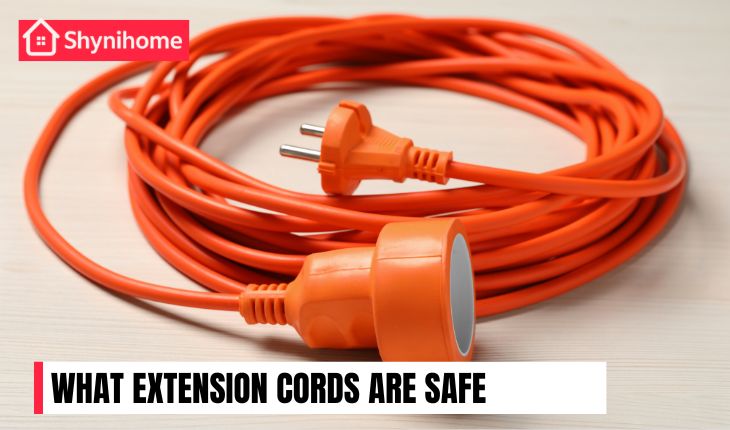
Go heavy-duty or go home! Always look for Extension cords with a 12-gauge (or thicker) wire, designed specifically for outdoor or rugged use — labeled something like SJTW. These cords can handle the higher power your tools need without overheating. Plus, choosing a shorter cord length helps reduce voltage drop — giving your tools the full juice they need to perform their best. 🔌⚡
Table of Contents
Toggle⚠️ Why Choosing the Right Extension Cord Matters
Extension cords might seem like a simple tool — just plug and go, right? Wrong. Using the wrong cord with your power tools can cause:
- Overheating 🔥
- Electrical fires
- Undervoltage (which damages motors)
- Shocks and serious safety hazards
That’s why understanding extension cords and their safe use is essential for every DIYer and homeowner.
👉 Also Read: How to Maintain and Sharpen Garden Tools
🔍 Key Features to Look for in Extension Cords for Power Tools

1. Cord Gauge (Wire Thickness)
The gauge (AWG – American Wire Gauge) determines how much current the cord can safely handle.
- 12-gauge: Best for heavy-duty power tools
- 14-gauge: Good for medium-load tools
- 16-gauge: Only suitable for light-duty tasks (like lamps or phone chargers)
📌 Rule of thumb: Lower AWG = Thicker wire = More power capacity
2. Cord Length
Longer cords = more voltage drop
So, choose the shortest possible cord for your needs.
| Cord Length | Recommended Gauge for Power Tools |
|---|---|
| Up to 25 ft | 14 or 12 AWG |
| 50 ft | 12 AWG |
| 100 ft | 10 AWG (or use shorter cord) |
3. Amperage Rating
Check your power tool’s amperage (e.g., drill = 6A, saw = 12A).
Then, match the cord’s maximum amp rating — it should be equal to or higher than your tool’s.
4. Indoor vs Outdoor Cords
Look for outdoor-rated cords if you work outside. They’re built to withstand:
- Moisture ☔
- UV rays ☀️
- Abrasion 💥
✅ Look for markings like “W” or “SJTW” for outdoor use.
🧯 Safety Tips for Using Extension Cords with Power Tools
- ❌ Don’t daisy-chain (connect multiple cords)
- ✅ Uncoil fully to prevent overheating
- ✅ Always plug into a grounded outlet
- ❌ Never use damaged or frayed cords
- ✅ Disconnect when not in use
- ✅ Store in a dry, cool place
🛠️ Recommended Extension Cords for DIYers
| Type | Use Case | Example |
|---|---|---|
| 12-Gauge, 50 ft | Circular saws, drills, compressors | Outdoor heavy work |
| 14-Gauge, 25 ft | Sanders, small shop vacs | Garage projects |
| 10-Gauge, 100 ft | High-power tools, long distance | Outdoor builds |
💡 Quick Checklist Before You Plug In
✅ Is the cord rated for outdoor or indoor use?
✅ Does the gauge match the power need?
✅ Is the length appropriate?
✅ Is the cord in good condition?
✅ Are you using a GFCI outlet for safety?
👉 Also Read: DIY Tools 101: A Beginner’s Guide to Home Improvement
🧠 Conclusion
Not all extension cords are created equal — and using the wrong one can seriously damage your tools or even risk your safety. Always choose the right gauge, length, and rating based on the power tool you’re using.
🔑 Pro Tip:
Invest in a few heavy-duty cords rather than cheap, weak ones. Your tools — and your safety — will thank you!
